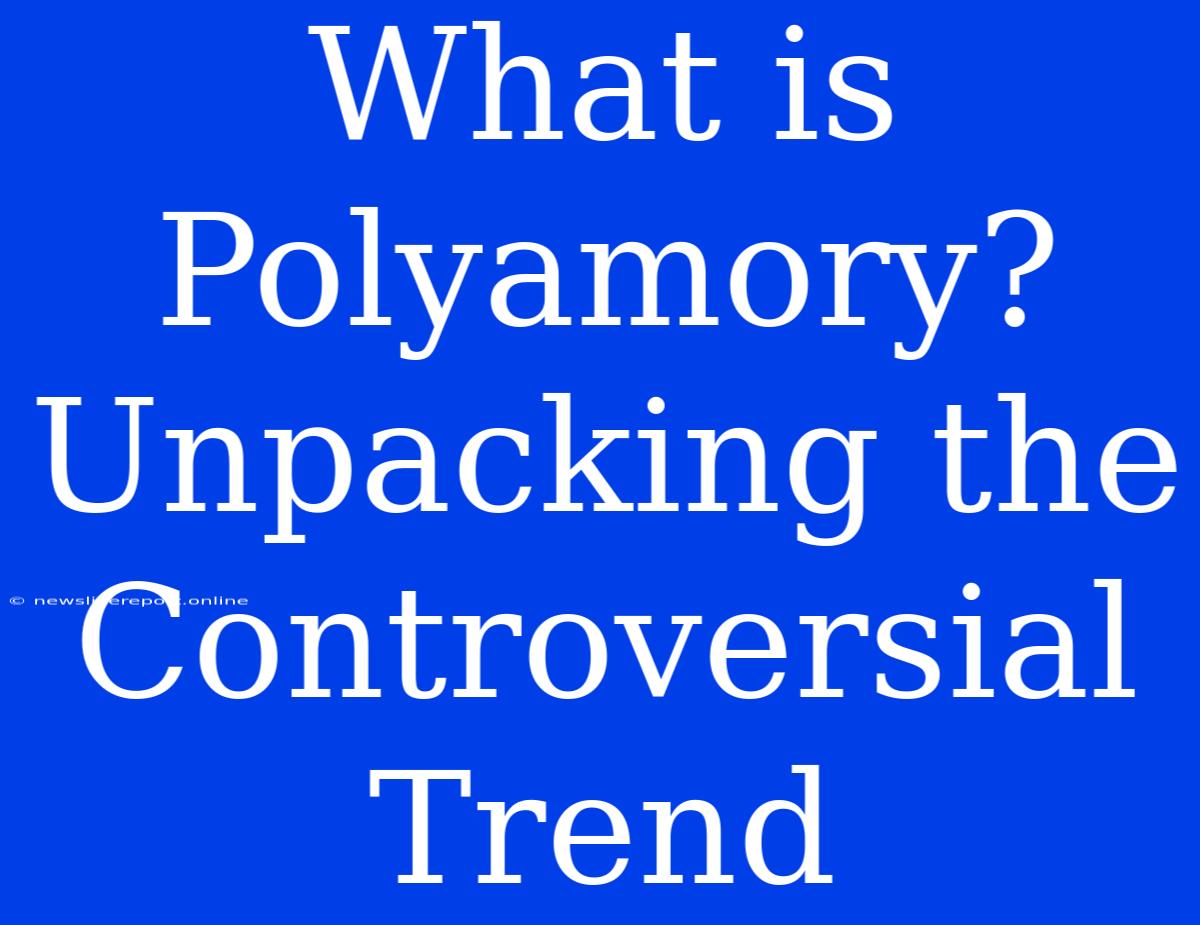What is Polyamory? Unpacking the Controversial Trend
Polyamory, a term that evokes a mix of curiosity and skepticism, is increasingly making its way into mainstream discourse. But what exactly is it? And why does it spark such varied reactions?
Beyond the Buzzwords:
Polyamory, also known as ethical non-monogamy, describes a relationship style where individuals have open and honest relationships with multiple partners. Crucially, this isn't just about casual flings; it involves mutual consent, communication, and respect for the needs and boundaries of everyone involved.
Key Differences:
- Openness: Polyamorous relationships are built on transparency and consent, whereas open relationships often involve less communication and fewer defined agreements.
- Ethics: Polyamory prioritizes ethical considerations, ensuring all partners are aware and consent to the relationship structure.
- Relationships: Polyamory goes beyond casual encounters; it focuses on building genuine, committed relationships with multiple people.
Understanding the Controversial Side:
Polyamory's rising visibility has sparked debate, particularly regarding its social acceptance and its implications for traditional relationship norms.
Common Misconceptions:
- Lack of commitment: Polyamory isn't about a lack of commitment; it simply redefines the parameters of commitment.
- Jealousy and insecurity: While jealousy can occur in any relationship, successful polyamorous relationships are built on open communication and healthy coping mechanisms.
- Chaos and instability: Polyamory thrives on structured communication and clear expectations, which can actually lead to greater stability and emotional security.
A Shifting Perspective:
Despite its controversial nature, polyamory offers valuable insights into evolving relationship dynamics and encourages a reexamination of traditional relationship models. It challenges us to rethink notions of love, commitment, and emotional fulfillment in a world where individual choices and diverse lifestyles are becoming increasingly prevalent.
Moving Forward:
Open dialogue and education are essential to demystify polyamory and foster greater understanding. By dispelling misconceptions and embracing diverse relationship models, we can create a more inclusive and accepting society that values individual autonomy and genuine connection.

